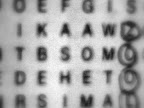The statistics of campaign 2008 in the news
A few days ago the Project for Excellence in Journalism and the Joan Shorenstein Center on the Press, Politics and Public Policy released a joint study on the coverage of the presidential candidates so far.
The research has some not-surprising but definitely useful statistics about how much the coverage focuses on the horse race, and how the public wants (or, at least, says it wants) more coverage of the issues.
The study says:
The majority of all stories (63%) were primarily about the “game” aspects of the campaign—topics such as who is winning, who is losing, their fundraising, and how a candidate is performing on the stump. Of these topics, the lion’s share (50% overall) was tactical or horse race—that is polls, strategy and candidate “performance.” The next biggest political concern was campaign fundraising, which made up 7% of all stories.
One line of the study troubled me:
Front-page coverage of Giuliani in the newspapers studied tended to be more negative than anything else (six out of 12), thanks in part to rough coverage from his hometown paper, The New York Times.
Rough coverage? I don't like how they say it. The point is that having 6/12 article be negative is notable, for it is more negative than what many other candidates have gotten. But 'rough', to me, implies unfair.
What's true is that the NYT has run a number of stories that have raised some troubling questions about Giuliani (there's another one on page one today, in relation to Bernard Kerik). But the study doesn't even try to lay out any evidence that these articles have been unfair. In fact, to the contrary, there's a healthy argument that the NYT coverage of Giuliani has bent facts to defend him.
If, hypothetically, Hitler was running for president, and 12 out of 12 articles about him showed primarily 'negative' themes, would we say the coverage had 'roughed' him up? No. Because sometimes people have such a history of lying and making bad policies that negative words about them are only appropriate and accurate.
If you need some references on Giualini's lying, check out Krugman's nice work from Friday.
All of this said, I think the study mostly avoided the mistake of saying that negative coverage of a candidate is necessarily biased.


1 Comments:
I like your point/distinction that negative coverage isn't necessarily unfair.
I've been so sick of coverage of the horse race (or really, the presidential race at all) since like 6 months ago.
Snazzy new header on the blog!
Post a Comment
<< Home